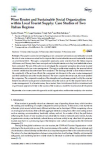Chiodo E., Giordano L., Tubi J., Salvatore R. (2020). Wine routes and sustainable social organization within local tourist supply: case studies of two Italian regions. Sustainability, 10/11/2020, vol. 12, n. 22, p. 1-18.
https://doi.org/10.3390/su12229388
https://doi.org/10.3390/su12229388
| Titre : | Wine routes and sustainable social organization within local tourist supply: case studies of two Italian regions (2020) |
| Auteurs : | E. Chiodo ; L. Giordano ; J. Tubi ; R. Salvatore |
| Type de document : | Article |
| Dans : | Sustainability (vol. 12, n. 22, November 2020) |
| Article en page(s) : | p. 1-18 |
| Langues : | Anglais |
| Langues du résumé : | Anglais |
| Catégories : |
Catégories principales 04 - DEVELOPPEMENT LOCAL ET REGIONAL ; 4.4 - TourismeThésaurus IAMM VITICULTURE ; VIN ; TOURISME VITIVINICOLE ; ECOTOURISME ; ANALYSE COMPARATIVE ; ANALYSE MULTIVARIEE ; COOPERATIVE VITIVINICOLE ; DEVELOPPEMENT LOCAL ; ATTRACTIVITE ; REGION ; ITALIE ; ABRUZZO ; TOSCANA ; TERRITOIRE |
| Résumé : | This paper is aimed at investigating wine companies’ perceptions and attitudes towards the role of wine routes as an actual tool to improve their tourist attractiveness and sustainable tourism on a territorial level. Through a comparative approach, some wineries from the Italian regions of Abruzzo and Tuscany have been surveyed and in-depth-interviews to key local stakeholders have been conducted. The aim of the survey is to investigate the companies’ perception about wine tourists’ characteristics and wine route management. Through a multivariate analysis, the reasons behind wineries’ satisfaction/discontent have been analyzed. The findings identify a close relation between the complexity of the services offered, the companies’ involvement in the wine routes management and their satisfaction about the results obtained. The more complex the services are, the more satisfied the companies. The comparative analysis of the strengths and weaknesses pointed out by the wineries’ keepers has allowed some general considerations about the tools to use for the improvement of wine routes management. In a broader sense, the wineries’ direct involvement both in investment and in governance appears to be key in the success of the routes as a model for local tourism development. |
| Cote : | En ligne |
| URL / DOI : | https://doi.org/10.3390/su12229388 |














